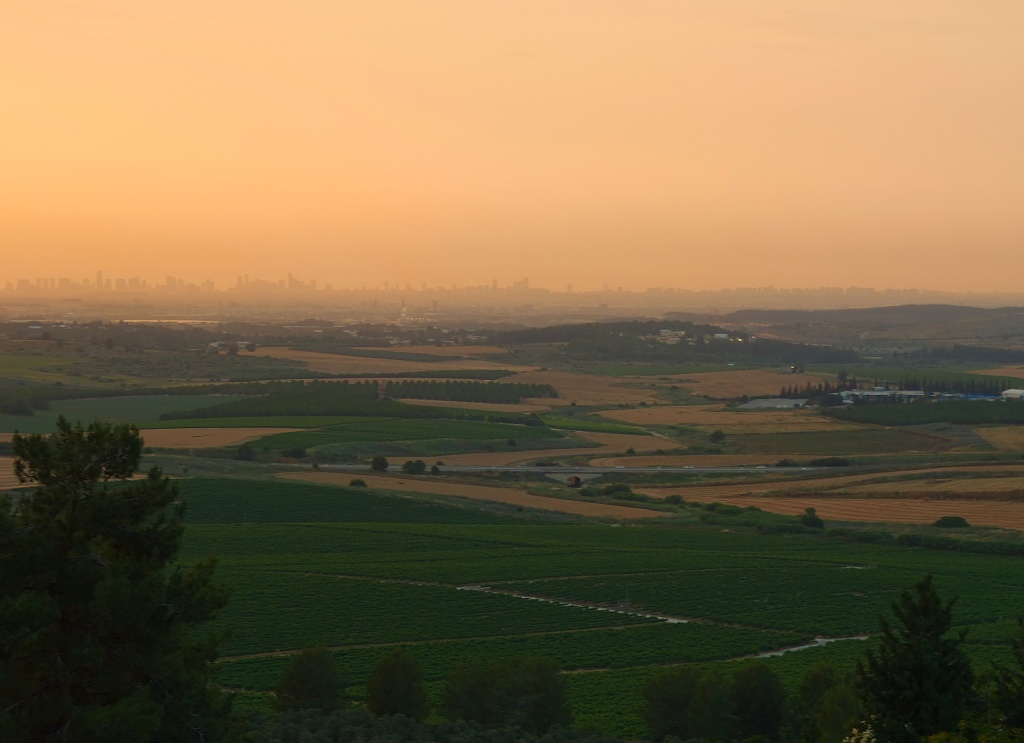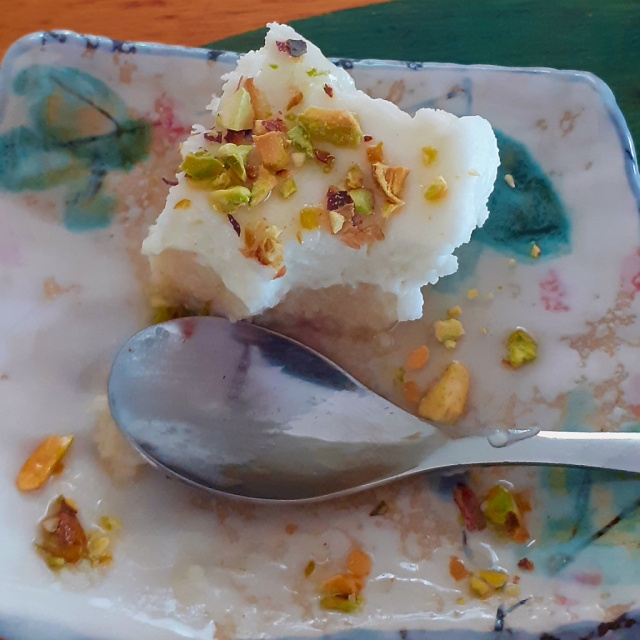Lazy day at home

Went for an early morning walk with my new barefoot-like sandals: crossing through the pinewoods, descending the path that leads down to the vineyards in the valley, then back up through the woods towards home. Surprised that despite the stony paths around here, there was no discomfort in these sandals, except once when I was looking at my phone and banged my toes into a rock lying on the path. That’s the thing about walking without adequate foot protection: you have to be mindful.
While walking I listened to another chapter of The Dawn of Everything, then some beautiful hang-drum and flute music by the Nadishana Trio, and similar tracks on Sound Cloud.
After breakfast, I watched a Frederick Wiseman documentary, High School.

H, a friend of D came to visit, bringing with her a dessert she had made for the holiday known as Layali Beirut (“Nights of Beirut”), which I enjoyed with a cup of English breakfast tea. It’s a kind of firm pudding, made from semolina, cream, orange blossom syrup, sprinkled with pistachio nuts.
In the evening I took some photos of the sunset, from the village entrance (above – more at my photoblog).
Links of the day
Real solutions to our global food crises are neither beautiful nor comforting. They inevitably involve factories, and we all hate factories, don’t we? In reality, almost everything we eat has passed through at least one factory (probably several) on its way to our plates. We are in deep denial about this, which is why, in the US, where 95% of the population eats meat, a survey found that 47% wanted to ban slaughterhouses.
The answer is not more fields, which means destroying even more wild ecosystems. It is partly better, more compact, cruelty-free and pollution-free factories. Among the best options, horror of horrors, is a shift from farming multicellular organisms (plants and animals) to farming unicellular creatures (microbes), which allows us to do far more with far less.
I have put Monbiot’s book Regenesis on my reading list.
